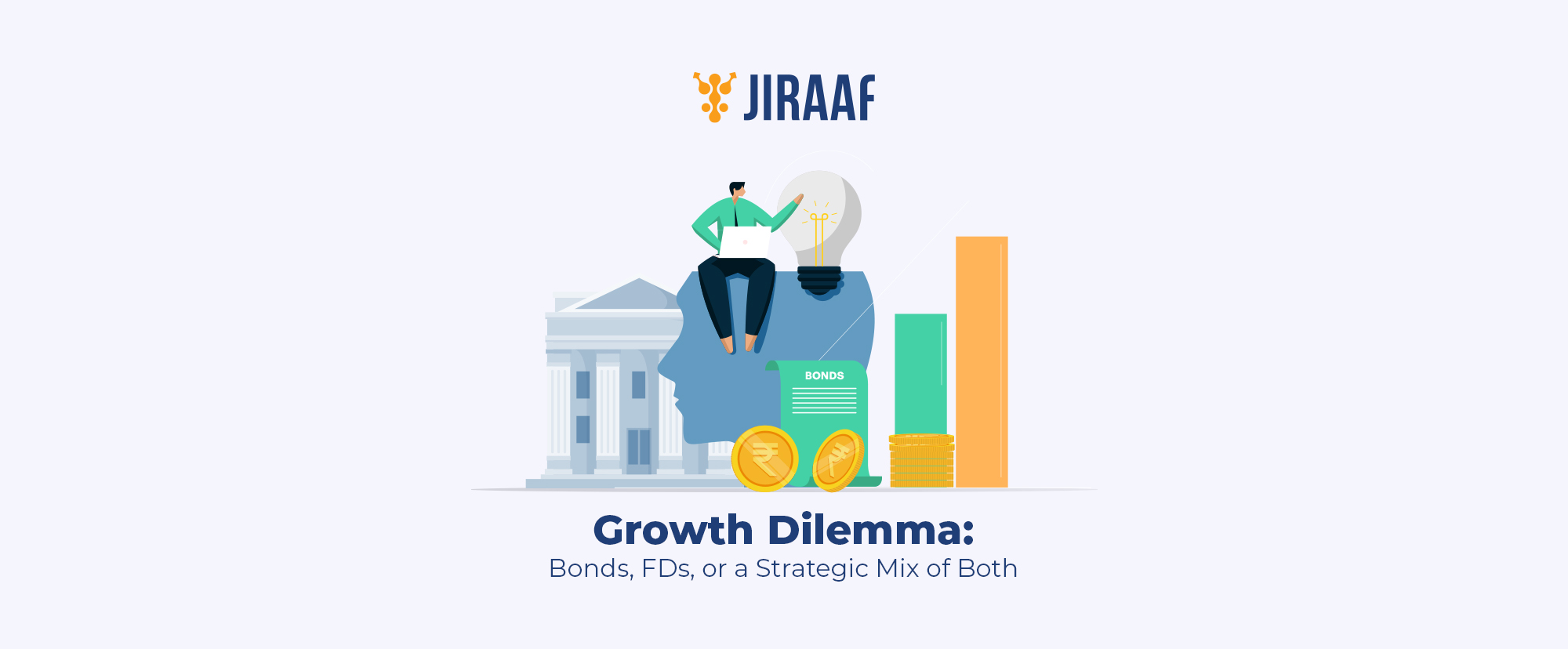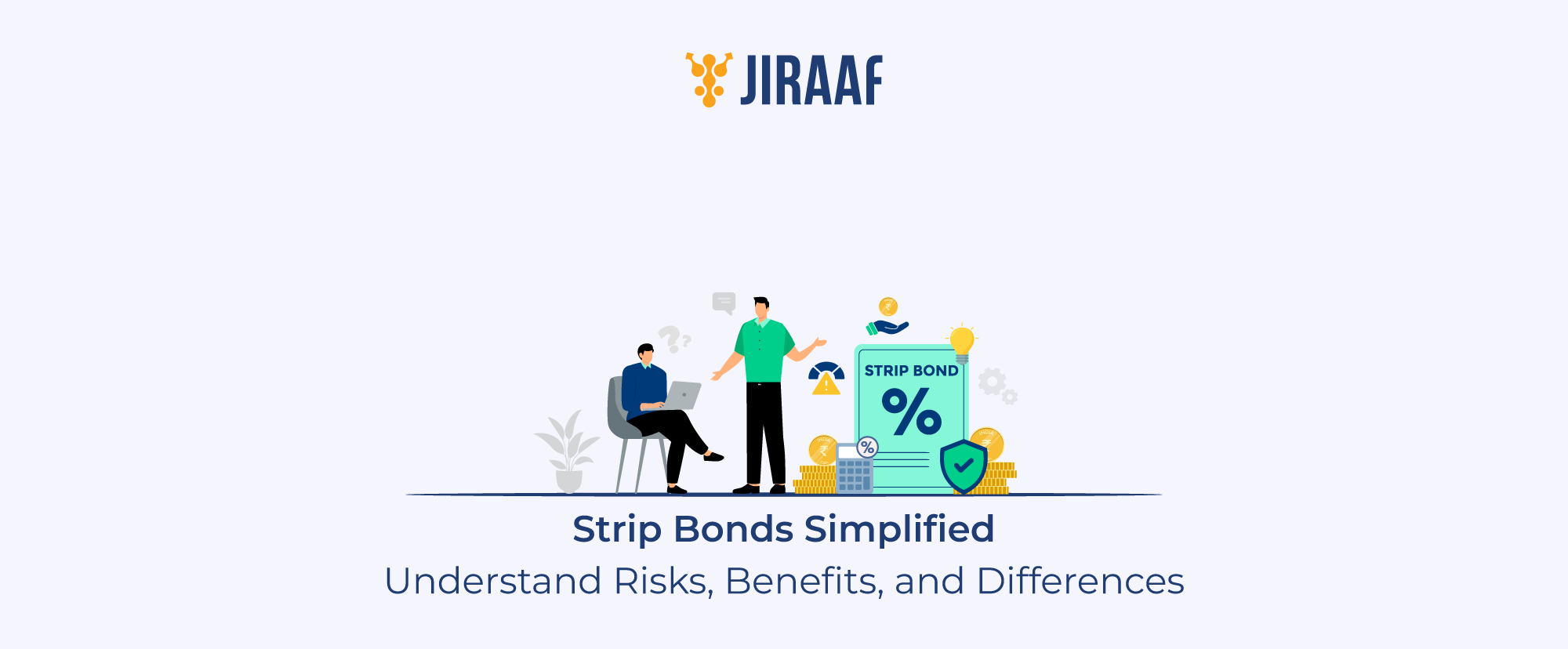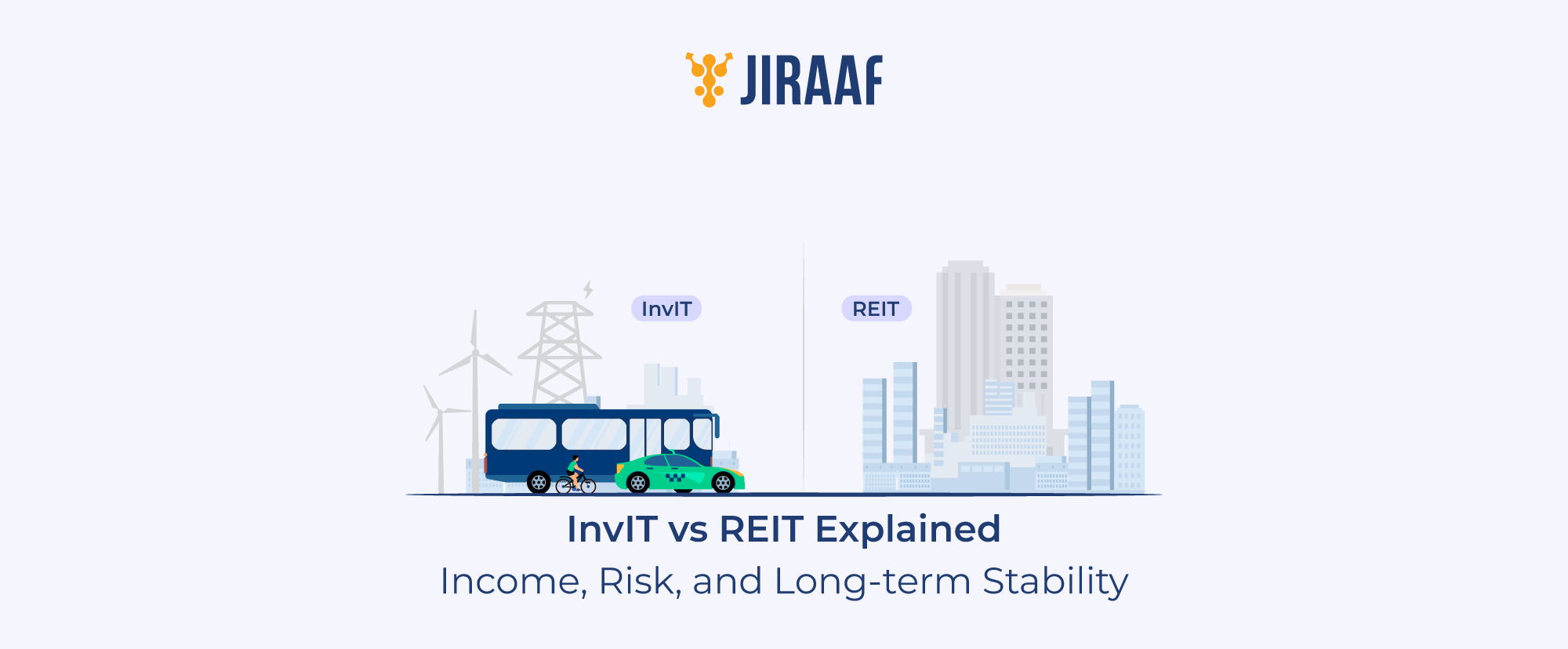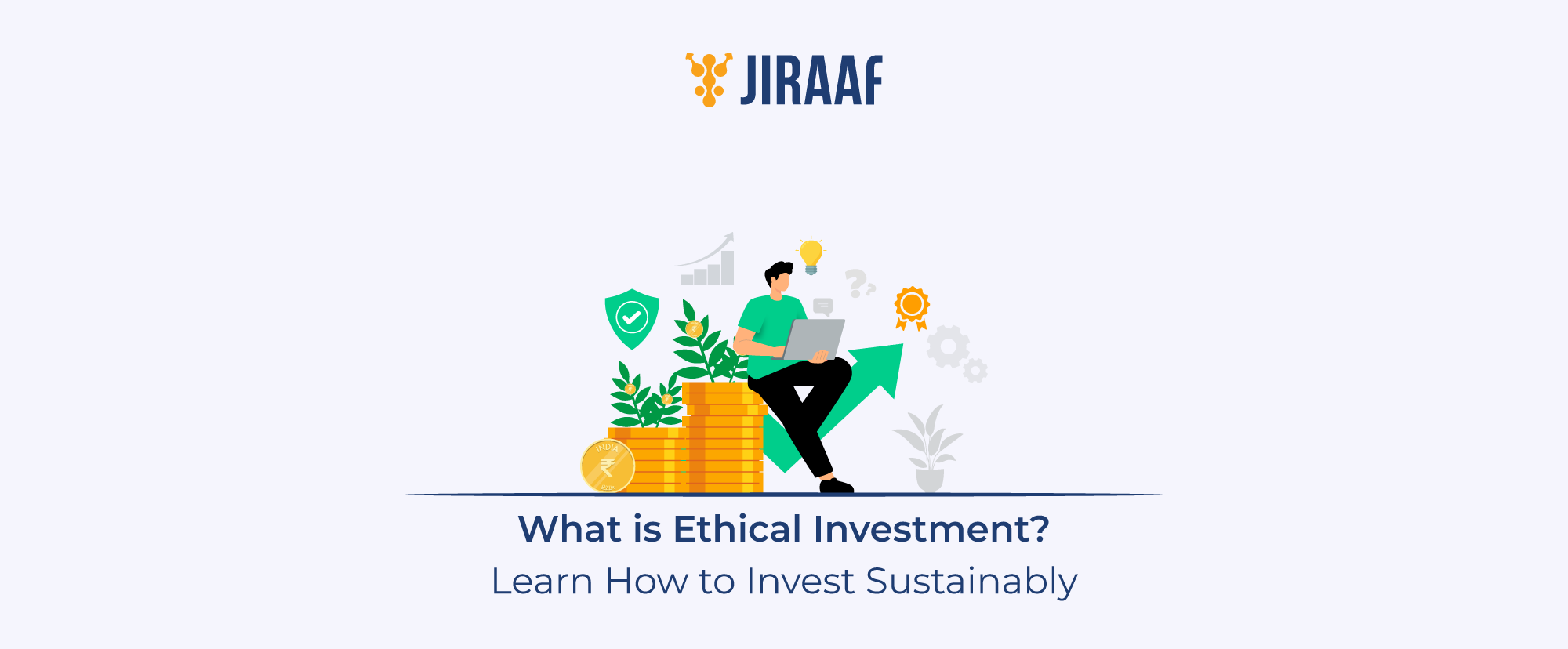When it comes to secured investment options, bonds and fixed deposits (FDs) are often the top picks. While they both provide a level of security and predictable returns, each has distinct characteristics that may make one more suitable for you than the other, based on your investment portfolio. Let’s dive deep, look at bonds and fixed deposits in detail and understand how they differ from each other.
What are Bonds?
Bonds are a debt instrument issued by governments, municipalities, and corporations to raise capital to fund various projects and operational needs. Essentially, when you buy a bond, you lend money to the issuer for a specified period of time. In return, the issuer typically pays you interest (usually – monthly, quarterly or annually) and repays the principal amount when the bond matures.
Key Benefits Of Investing In Bonds:
- Bonds are less risky than stocks or equity, and if held until maturity they offer stable and consistent returns.
- Bonds can help balance your investment portfolio, potentially reducing overall risk.
- Good for conservative investors, bonds can be a way to preserve capital while earning return.
- With fixed-rate bonds, you can predict how much interest you’ll receive and when.
Disadvantages of Investing in Bonds:
- Bond prices are influenced by changes in the interest rates. Existing bond prices tend to fall in response to the rise in interest rates, reducing their value.
- There’s a possibility that a bond issuer may default and fail to make interest or principal payment.
- Some bonds may come with liquidity constraints and can be difficult to sell without a price penalty such as municipal or corporate bonds.
- Some bonds can be “called” or redeemed early by the issuer, potentially disrupting investment plans.
What are Fixed Deposits (FDs)?
Fixed Deposits are financial instruments through which investors deposit a lumpsum amount of money for a predetermined period to earn a fixed rate of return. FDs are offered by banks, post offices, and non-banking financial companies (NBFCs). Upon maturity, the investor receives both the principal amount and the accrued interest. FDs remain a popular low-risk investment option due to the stability and assured returns.
Key Benefits Of Investing in Fixed Deposits:
- Many banks offer higher interest rates on FDs for senior citizens, providing them with better returns on their savings.
- Tax-saver FDs, offer tax deductions under Section 80C of the Income Tax Act (in India). This section permits taxpayers to receive deductions of up to ₹1.5 lakh financial year on various investments and expenses, including tax-saver FDs.
- Fixed deposits can often be opened with relatively small amounts, making them accessible to a wide range of investors.
- Investors can choose the duration of fixed deposits ranging from 7 days to 10 years
Disadvantages of Fixed Deposit (FD) Investment:
- FDs typically offer low returns compared to riskier investments like stocks or bonds. If the interest rate is lower than the inflation rate, the real value of your money decreases over time.
- Once the fixed deposit is locked in the bank, you can’t take advantage of the rising interest rates without breaking the FD.
- Once an FD account is opened with a bank, you generally can’t add funds or change terms of the existing FD.
- If you want to access your funds before the FD matures, you may face penalties or reduced interest rates for early withdrawal.
Taxation of Bonds and FDs in India
The taxation of bonds and fixed deposits (FDs) in India varies based on the type of the income generated, directly influencing your returns. Here’s a breakdown of how it is taxed.
Taxation on Bonds
- Interest Income: The interest earned on most bonds is taxable according to your income tax slab, meaning higher earnings may be taxed at a higher rate.
- Tax-Free Bonds: Certain bonds, like those issued by government-backed entities, offer tax-free interest under Section 10(15) of the Income Tax Act, making the income exempt from tax.
- Capital Gains: If you sell bonds before maturity, any gains are subject to tax. Long-term capital gains (for bonds held over 12 months) are taxed at 12.5% without indexation benefits, while short-term capital gains (for bonds held 12 months or less) are taxed at 20%.
Taxation on Fixed Deposits (FDs)
- Interest Income: Interest earned on fixed deposits is fully taxable and is added to your total income for the year. It is taxed according to your income tax slab rate.
- Tax Deducted at Source (TDS): Banks deduct TDS at 10% on FD interest if it exceeds ₹40,000 in a financial year (₹50,000 for senior citizens). If you do not provide your PAN, TDS is deducted at 20%.
- Tax-Saving FDs: These FDs offer tax deductions under Section 80C of the Income Tax Act, up to ₹1.5 lakh per financial year. However, the interest earned on these FDs is still taxable and added to your income.
Which is Better – FD or Bonds? A Comparison
| Features | Fixed Deposits (FDs) | Bonds |
| Returns | Set by individual banks based on RBI guidelines | Determined by market forces, credit rating, and issuer |
| Diversification Within Asset Class | Limited to bank offerings | Wide variety (issued by government, corporate, municipal, etc.) |
| Suitability for Institutional Investors | Generally, not preferred by large institutional investors | Commonly used by institutional investors for portfolio management |
| Risk Level | Generally considered low risk | Varies from low to medium risk depending on the issuer and type |
| Maturity Period | Usually short to medium-term (few months to a few years) | Can range from short-term to very long-term (30+ years) |
| Interest Payment Frequency | Typically, at maturity or annually | Can be monthly, quarterly, semi-annually, and annually |
| Collateral | Typically, unsecured | Some bonds may be secured by specific assets |
| Regulatory Oversight | Regulated primarily by the Reserve Bank of India | Regulated by various bodies depending on the issuer (e.g., SEBI, RBI) |
Why Bonds Have an Edge Over Fixed Deposits (FDs)?
Bonds have an edge over fixed deposits (FDs) primarily due to their potential for greater returns, tax efficiency, liquidity and tradability. Bonds, particularly corporate ones, provide tax advantages with long-term capital gains rates. They can also be traded in the secondary market, offering more flexibility compared to FDs, which typically involve penalties for early withdrawal. Additionally, bonds allow for a wider range of investment options, enhancing diversification, while FDs are usually limited to bank offerings.
Discover fixed income investments with Jiraaf, a SEBI registered online bonds platform that educates and brings access to a wide array of bonds. Sign up today to explore diversified fixed income investment opportunities to support your goal-based wealth creation journey. Start investing!









